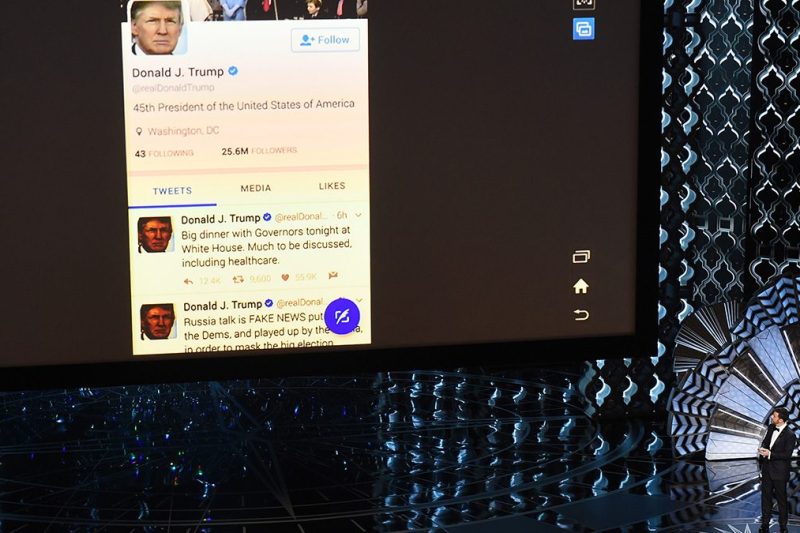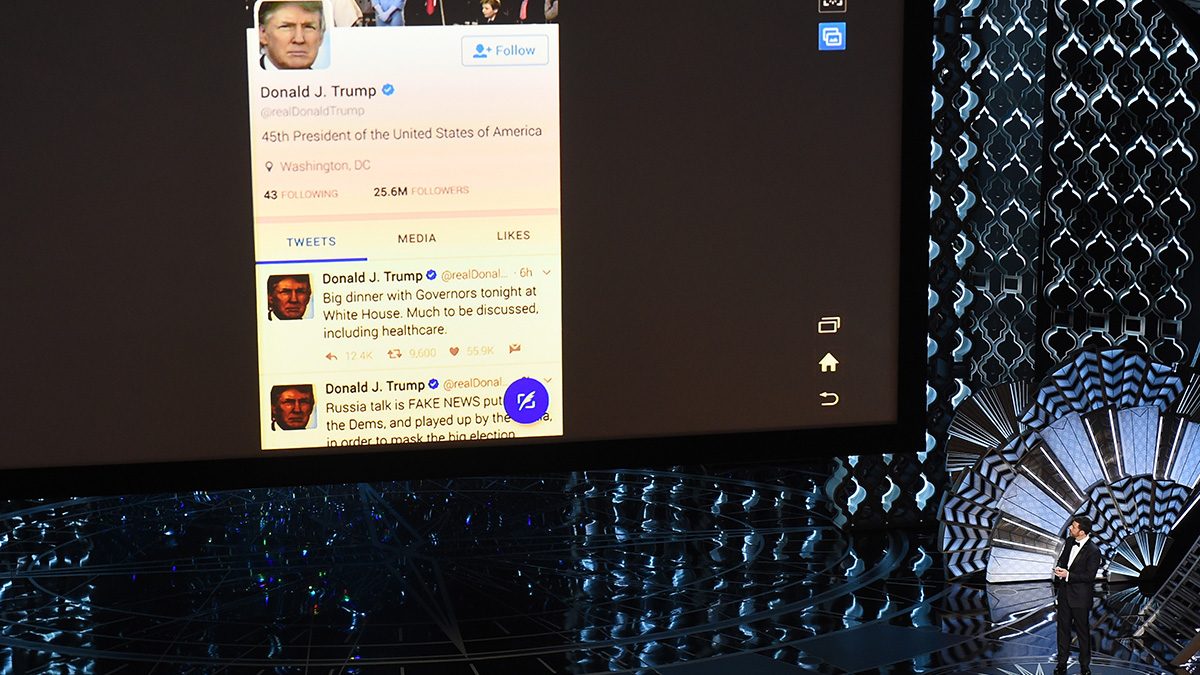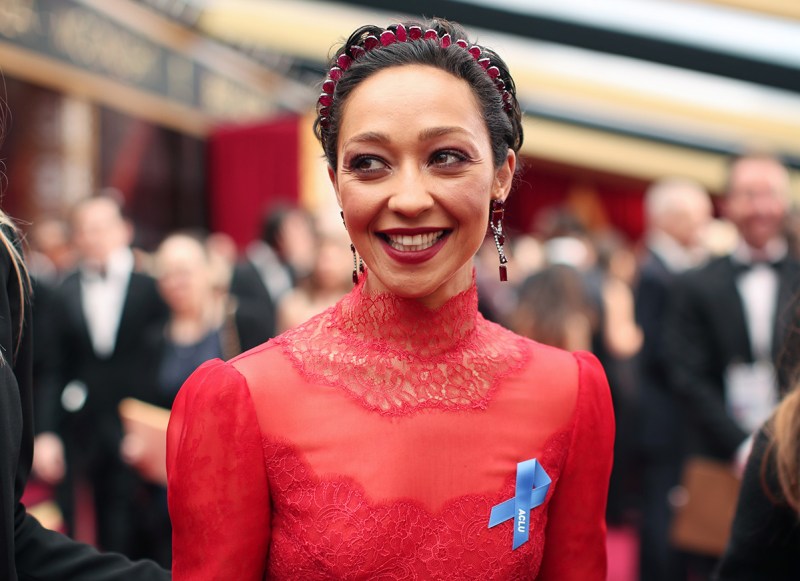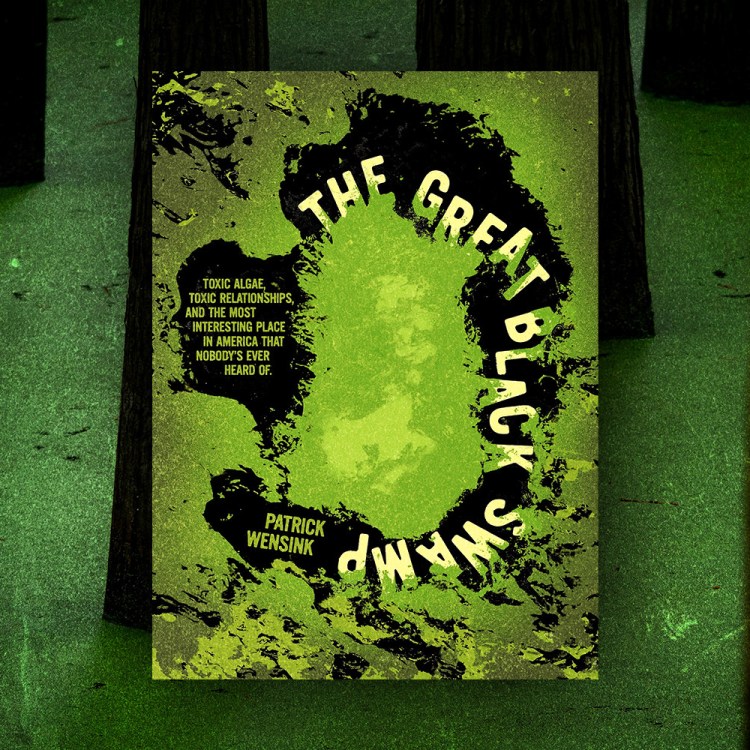
There was as much envelope pushing as envelope opening at Sunday night’s Oscars.
Politics was ready for its close-up at the Academy Awards, an award ceremony that spent nearly as much time panning the Trump Administration as it did crowning the best of the past year in filmmaking.
Going into the night, La La Land was considered a heavy favorite for best picture, but many film buffs viewed a possible upset by the indie drama Moonlight—about an African-American boy desperate to keep his homosexuality secret in a tough Miami neighborhood—as a statement against conservative values.
And whether or not Academy voters were making a statement, that film did win after some drama of the offscreen kind when presenters Warren Beatty and Faye Dunaway mistakenly announced La La Land in a gaffe of historic proportions. But painting the (eventual) winner as an anti-Trump statement is almost as tenuous as Red Staters viewing the Patriots’ Super Bowl win as validation of a Republican-led government last month. Moonlight was written and filmed before Trump even announced his candidacy.
“You certainly could make the argument that Moonlight won for cultural or political reasons,” conservative movie journalist Christian Toto, who runs the site HollywoodinToto.com, told RealClearLife. “Normally, a delight like La La Land would be a certain winner. Yet that isn’t totally fair to Moonlight, which is a very fine movie. But when you start thinking in politically correct terms, these kind of debates will undoubtedly come up.”
It took just one minute into Jimmy Kimmel’s monologue for the host to make his first joke about the 45th president. “This is being watched live by millions of people in 225 countries that now hate us,” Kimmel said.
To French actress Isabelle Hubbert, nominated for Elle, Kimmel quipped, “I’m glad Homeland Security let you in [the country]” and deadpanned that the acceptance speeches will be what “the president will tweet about in all caps during his 5 a.m. bowel movement.”
Throughout the evening both presenters and the winners peppered their remarks with left-leaning messages of defiance against Trump. “We have your back,” Moonlight director Barry Jenkins said during his acceptance speech for best adapted screenplay, in a shout-out to people who feel disenfranchised. “And for the next four years we will not leave you alone.”
When Iran’s The Salesman won for best foreign language film, a political statement from director Asghar Farhadi was read because the two-time Oscar winner boycotted the ceremony in protest of the Trump immigration policy towards his country. (See video below.)
This article appeared in an InsideHook newsletter. Sign up for free to get more on travel, wellness, style, drinking, and culture.


























